Choosing the Best Sensory Toys for Autism to Boost Focus and Engagement
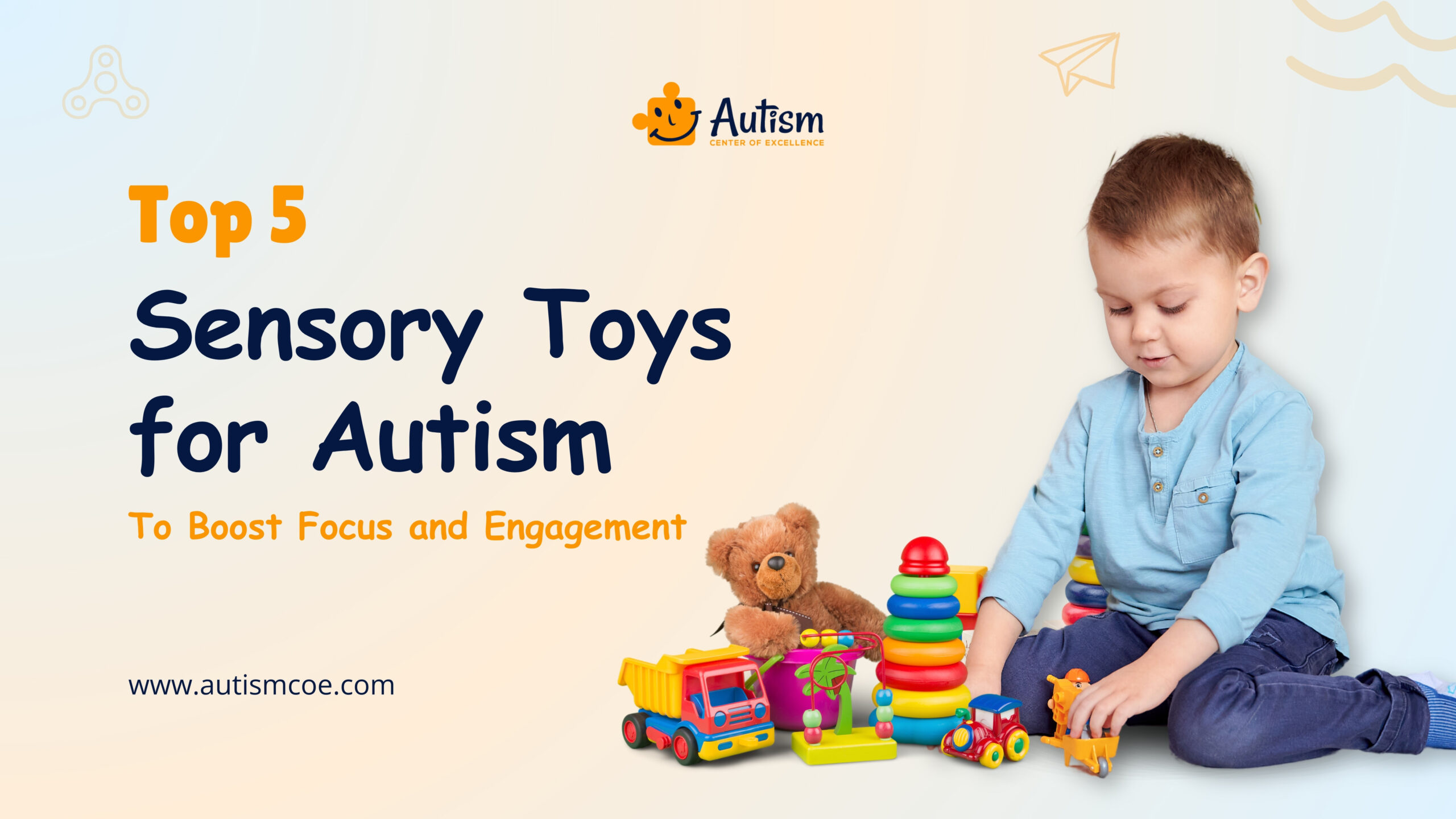
Finding effective ways to support children with autism in their daily lives is a top priority for many parents and caregivers. Here is one of the most promising tools: sensory toys – Autism-friendly Toys specifically meant to engage their senses with the aim of improving attention, regulating feelings, and enhancing developmental capabilities.
Choose the best-suited sensory toys designed specifically to the child’s need and make all the difference in their experience. Here’s a guide from the article on what are sensory toys, what is its benefits, and how they help with focusing on Autism; our top choices of the best sensory toys for autism.
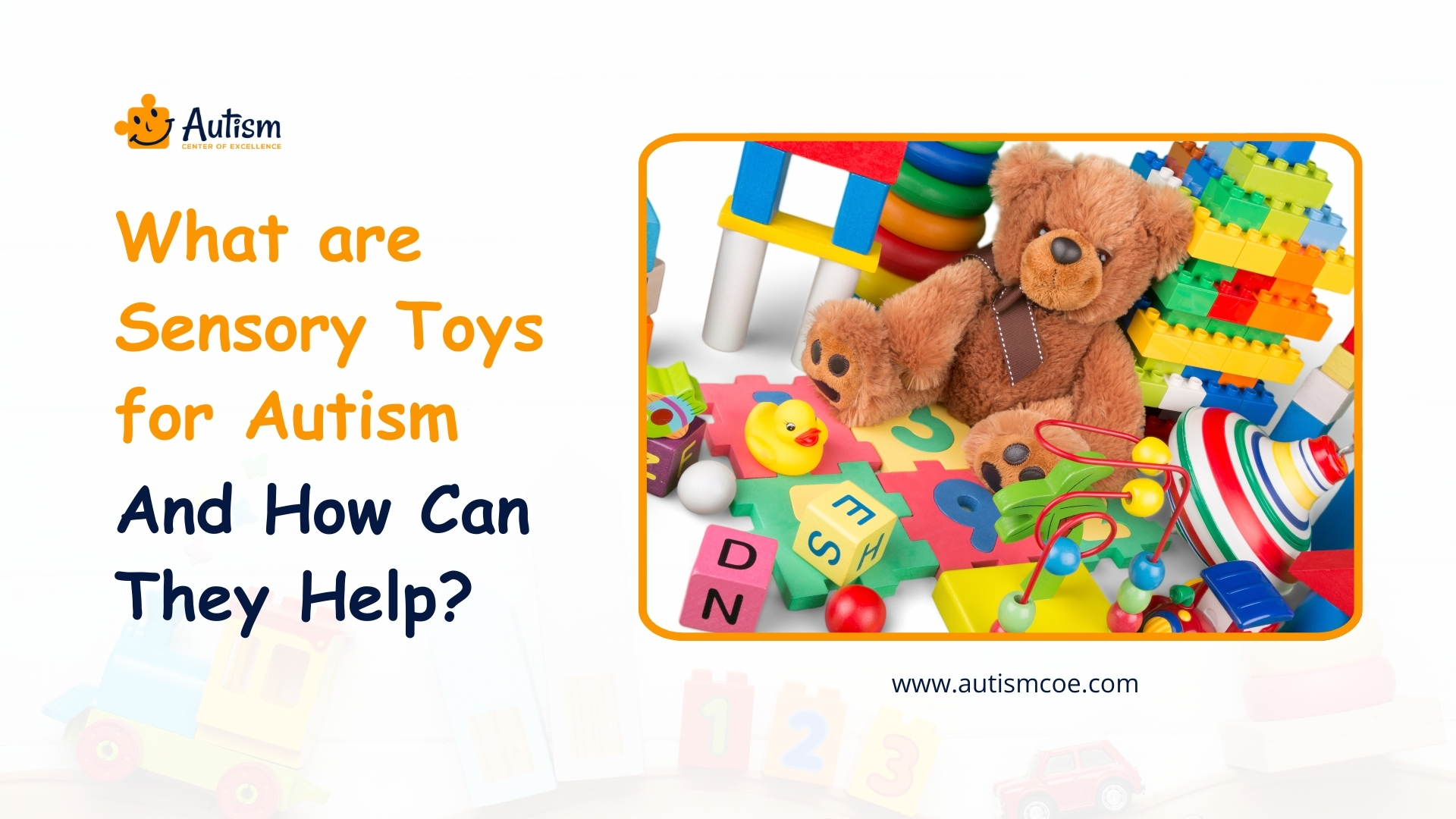
What are Sensory Toys for Autism?
Sensory toys will stimulate the senses, among them touch, sight, sound, taste, and movement. For an autistic child, usually overwhelmed by Sensory Processing, such toys would mean toys that help keep a child engaged, encourage calmness, and therefore develop.
Addressing Sensory Processing Challenges
Many children with autism experience Sensory Sensitivities, feeling overstimulated or understimulated by their surroundings. This can cause trouble concentrating, anxiety, or withdrawal from social interaction. Sensory items like weighted blankets, bubble tubes, or squishy balls can provide calming input.
Role in Therapy and Daily Life
They’re more than playthings for kids; they are valuable Autism Therapy equipment. They apply them in occupational or Speech Therapy to develop motor and communication skills. These can also be a great resource for homes and schools that can engage children and even calm them with interesting, fun activities.
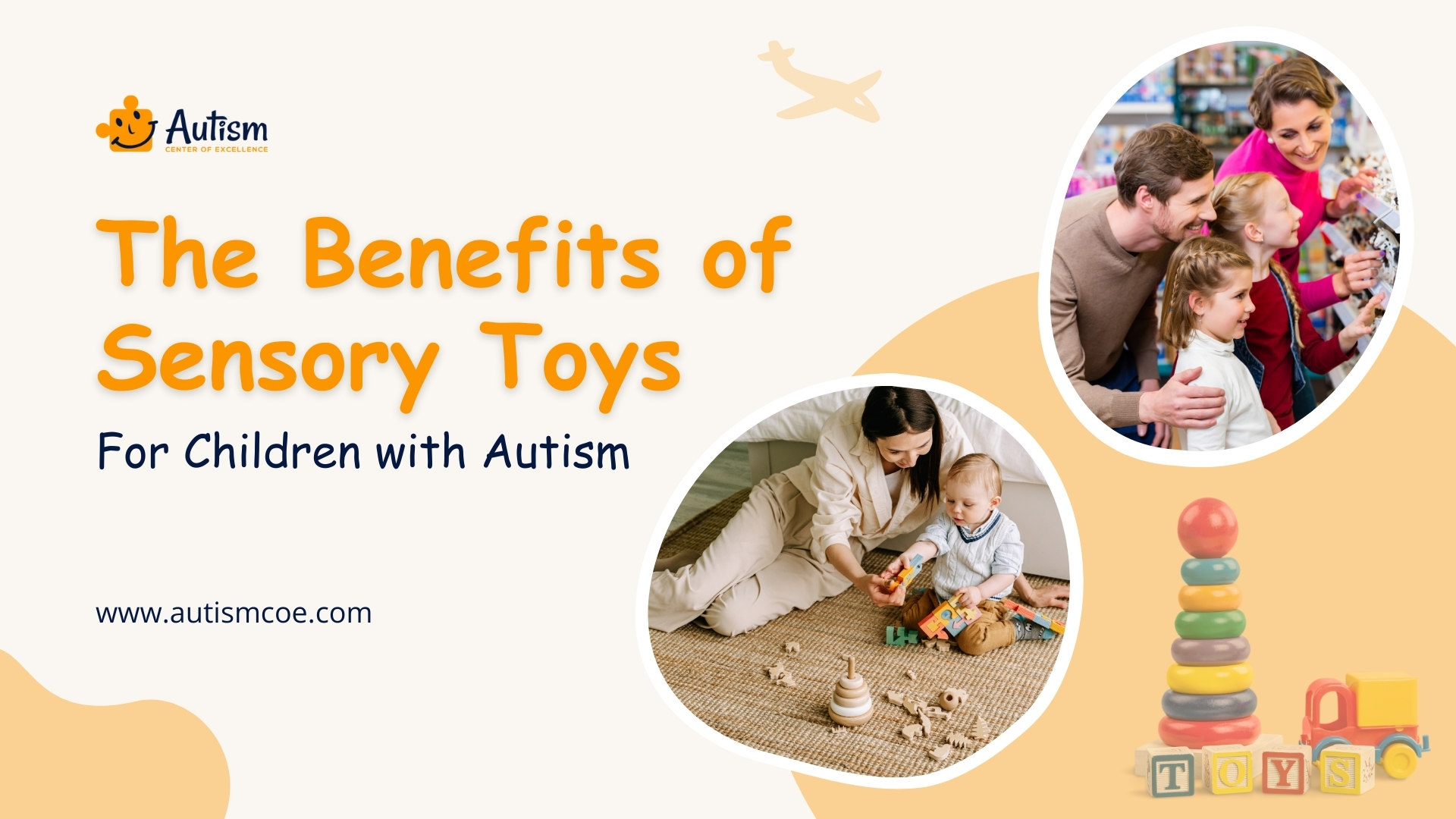
Key Benefits of Sensory Toys for Special Needs
Sensory toys offer more than fun— they are also developmental and therapeutic. They can improve the life of a child in so many ways, whether at home, school, or therapy. Here are some key advantages of sensory toys for Special Needs:
1. Improved Focus and Engagement
Children with autism usually have a hard time focusing. Fidget spinners or stress balls help them channel their attention productively. In classrooms, these tools can keep kids engaged in lessons.
2. Better Fine Motor Skills and Hand-Eye Coordination
Toys like chewable jewelry or spinning tops help develop Fine Motor Skills and hand-eye coordination. Gradually, improvements in these skills support routine activities such as writing or dressing.
3. Relaxation and Anxiety Relief
In a child with autism, overstimulation of senses creates more anxiety. Weighted blankets or lap pads help the child feel grounded by providing deep pressure, while light-up or sound toys create calming experiences for the child.
4. Support for Social Skills
Sensory toys can also stimulate social interaction. For example, Sensory Balls or Sound Devices help children to play together, communicate, and thus gain essential social skills.
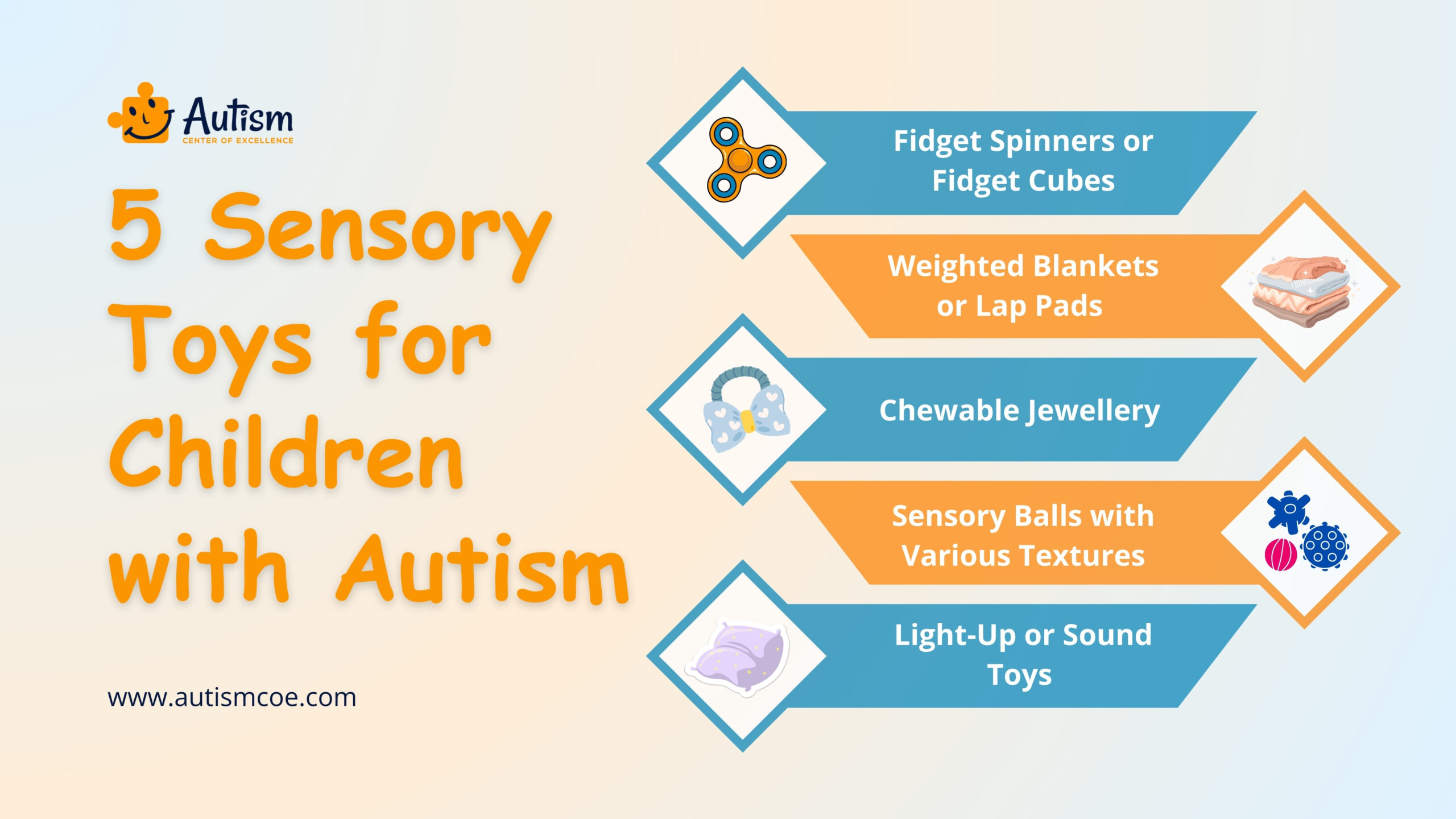
Top 5 Sensory Toys for Autism to Boost Focus and Engagement
Choosing the best sensory toys for autism can feel overwhelming. To make it easier, we’ve rounded up our top five autism-friendly toys that are tried, tested, and highly recommended by experts and caregivers alike.
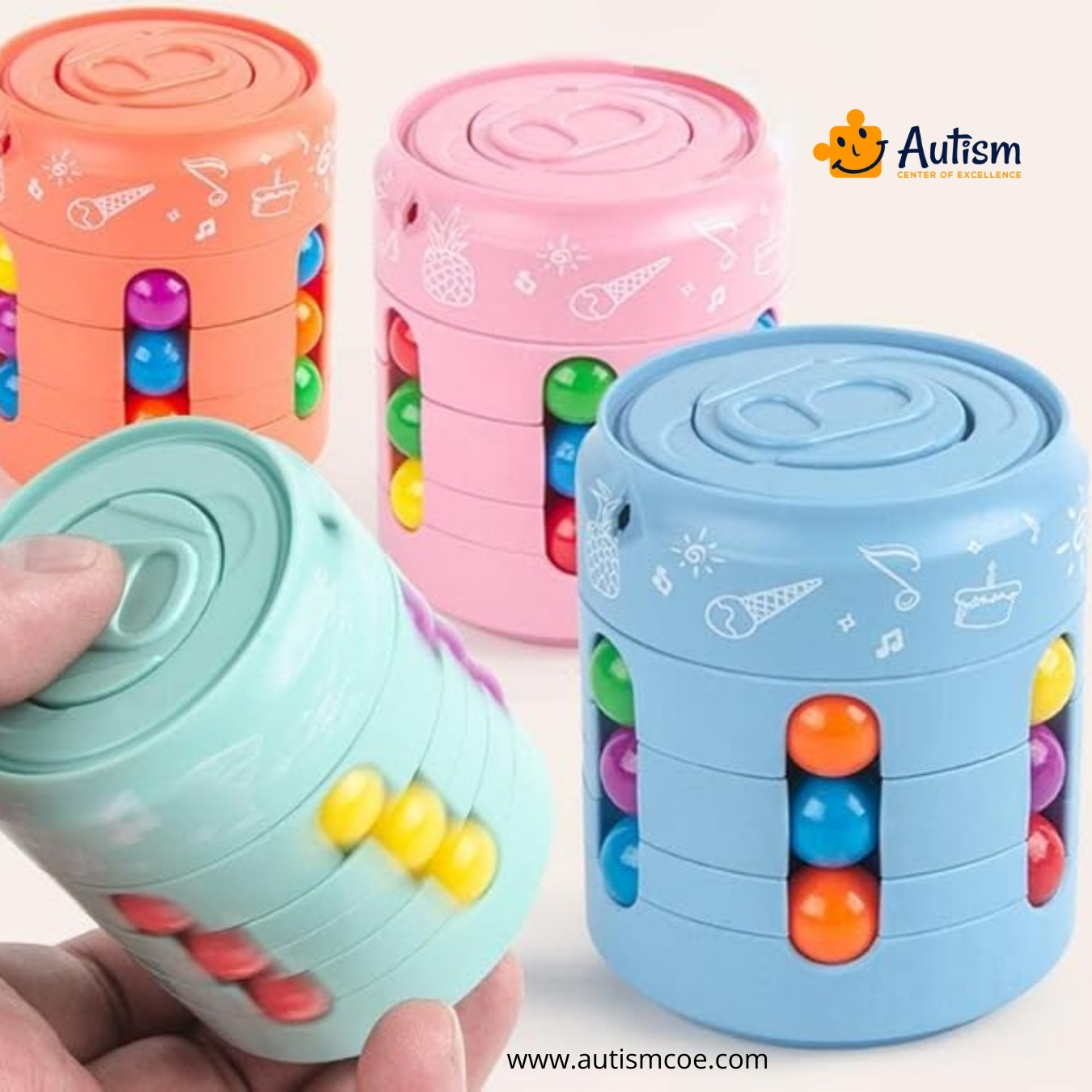
1️⃣ Fidget Spinners or Fidget Cubes
These are the best old-school toys to keep hands busy, focusing on the same point. The spinning or clicking motions provide tactile and visual stimulation that can reduce restlessness. They are compact and discreet, so they can be used in classrooms or in public spaces without causing distractions.
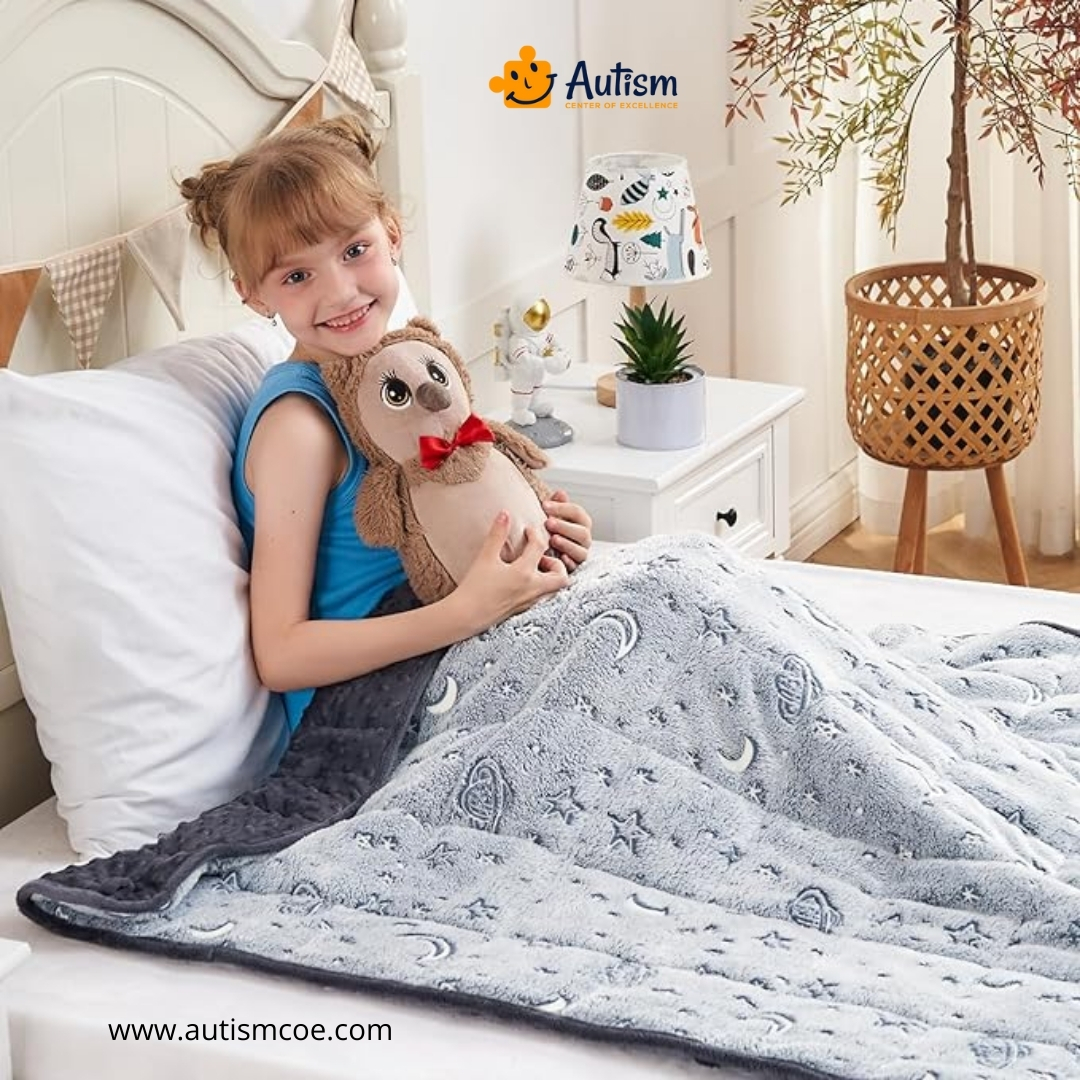
2️⃣ Weighted Blankets or Lap Pads
Weighted items are a great way of providing the calming effect that comes through deep touch pressure stimulation. It is very effective for those kids who have anxieties and sleep disorders. Use during quiet time, in bed or as a lap pad to use during an activity when stillness is required.
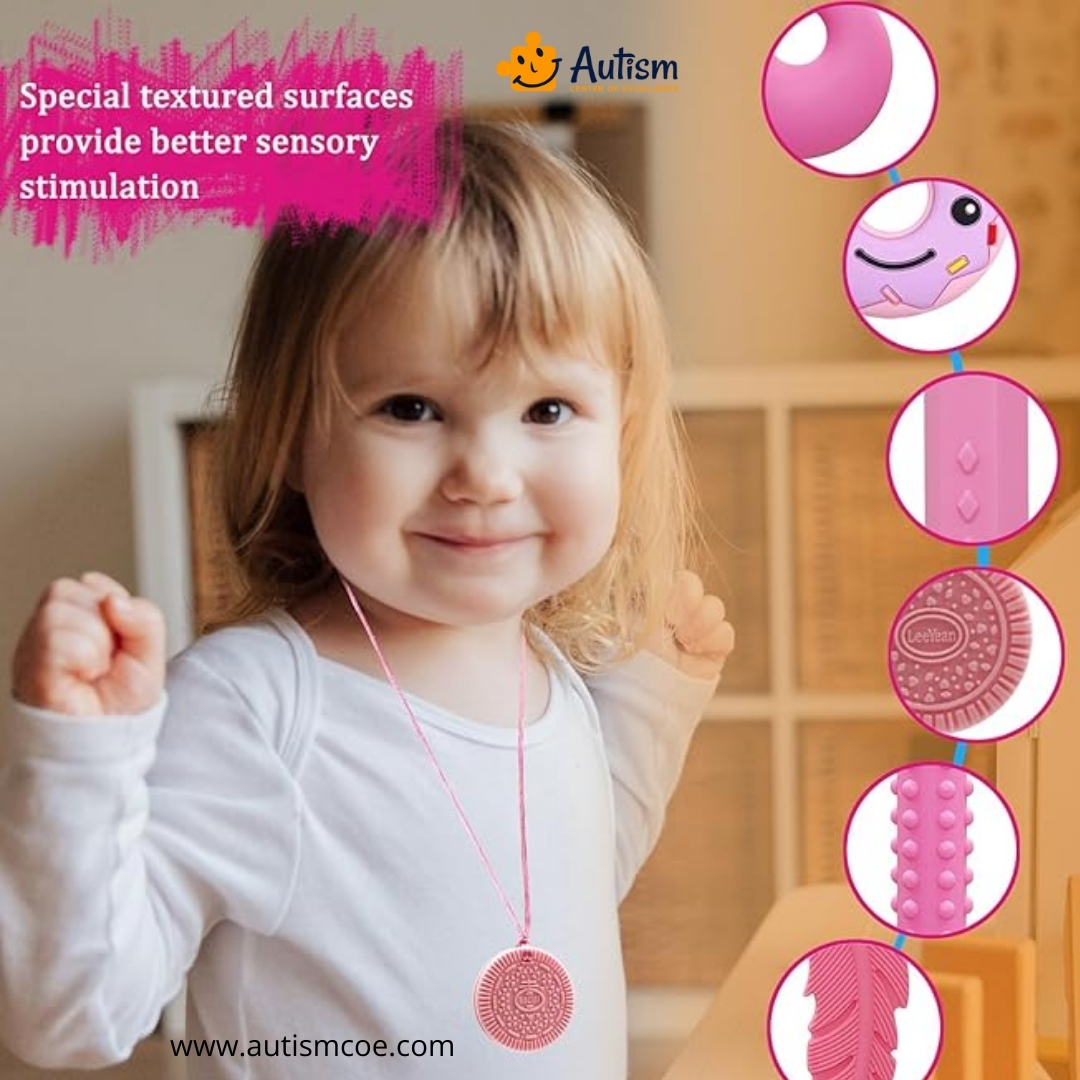
3️⃣ Chewable Jewellery
For children who chew on non-food items, Chewable Jewelry can be a safe and fulfilling alternative. They come in a variety of shapes, textures, and designs to meet oral sensory needs while enhancing concentration.
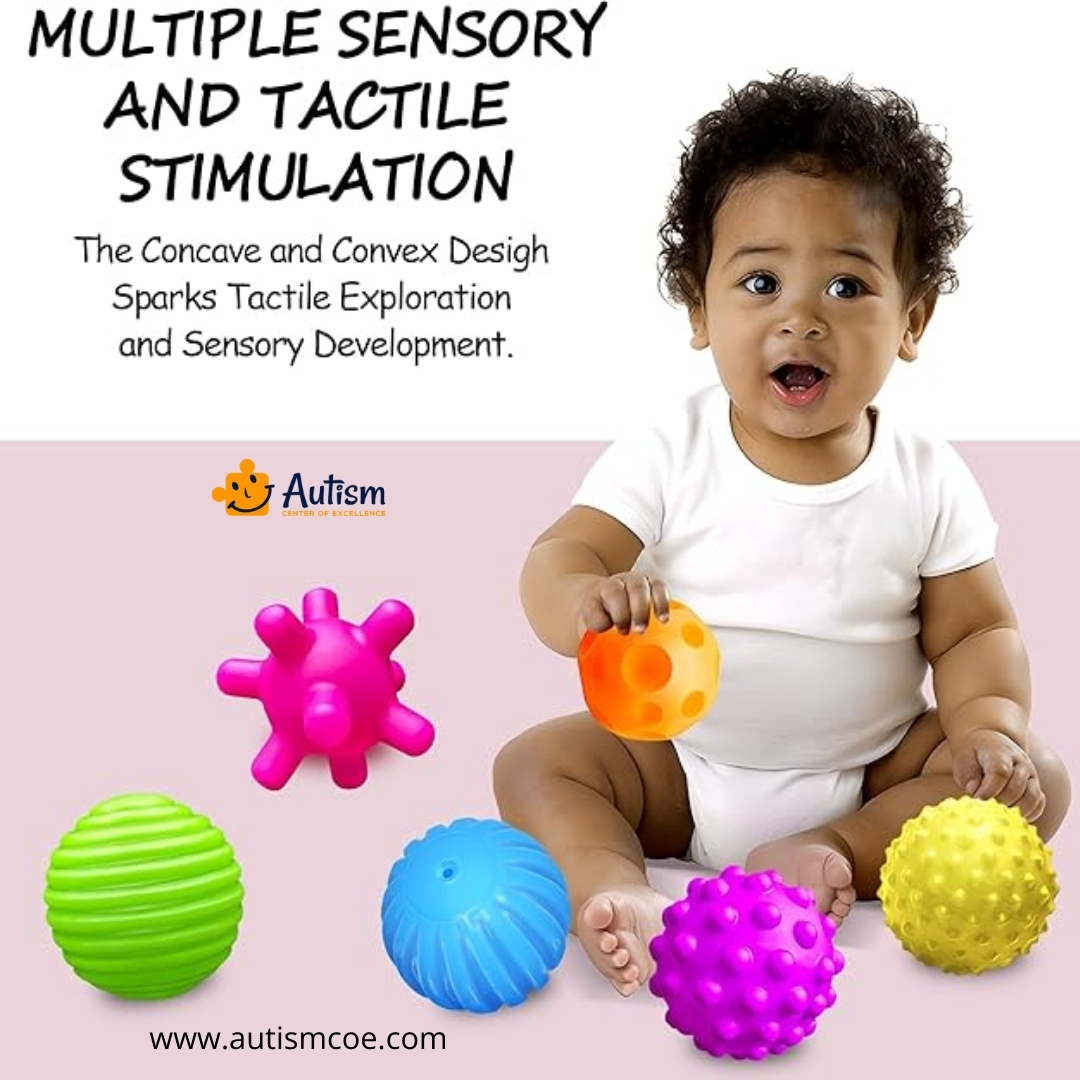
4️⃣ Sensory Balls with Various Textures
Whether Squishy, spiky, or smooth, sensory balls meet tactile stimulation needs. They’re perfect for kids working on their fine motor skills because squeezing or rolling them can strengthen the hands and coordination.
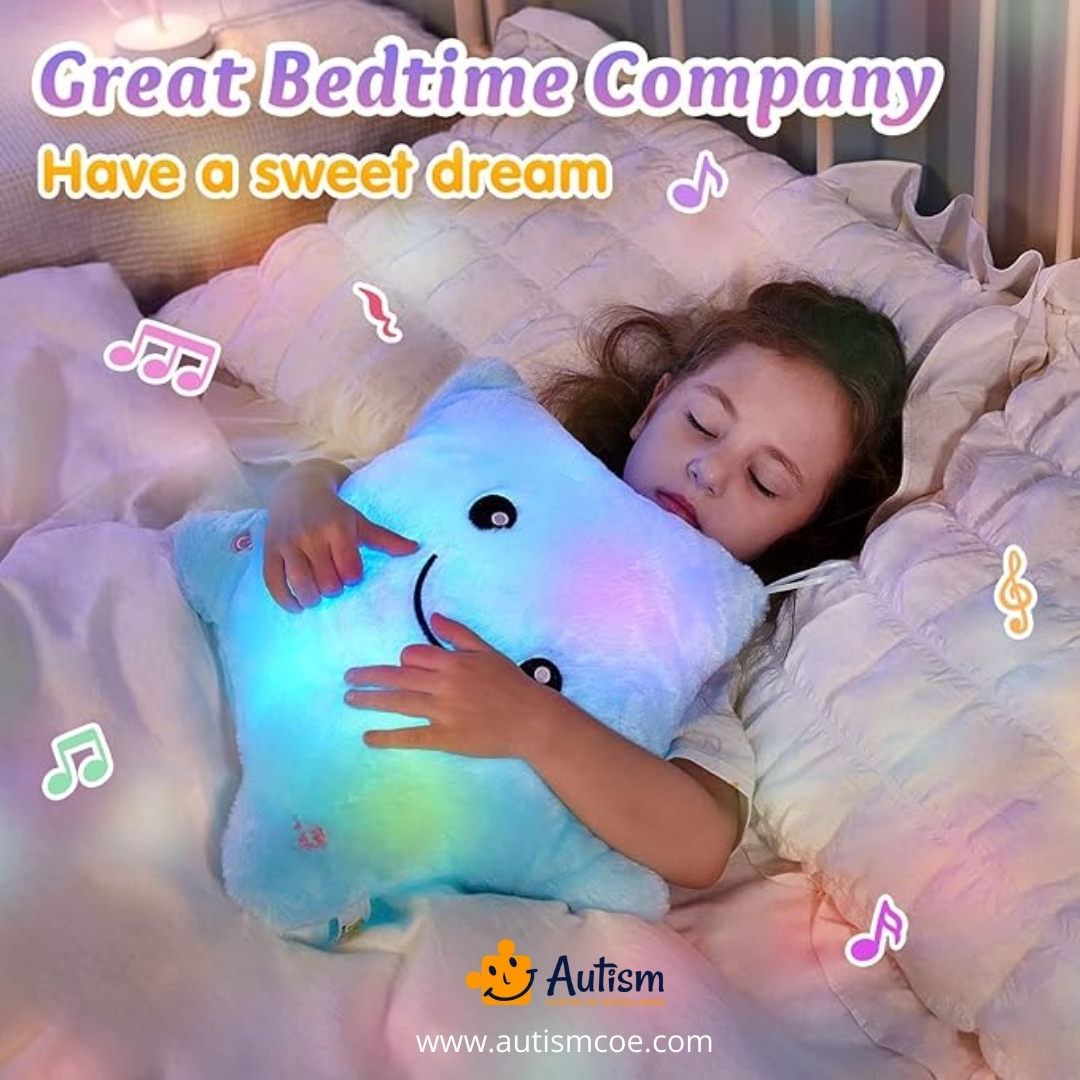
5️⃣ Light-Up or Sound Toys
These toys are visually captivating and provide a calming sensory experience. Bubble Tubes, for example, combine soft illumination with gentle movement, creating a soothing atmosphere that can help children relax and regulate their emotions.
Enjoying Reading?
Join Our Weekly Newsletters!
Subscribe now to stay updated with our latest email updates.
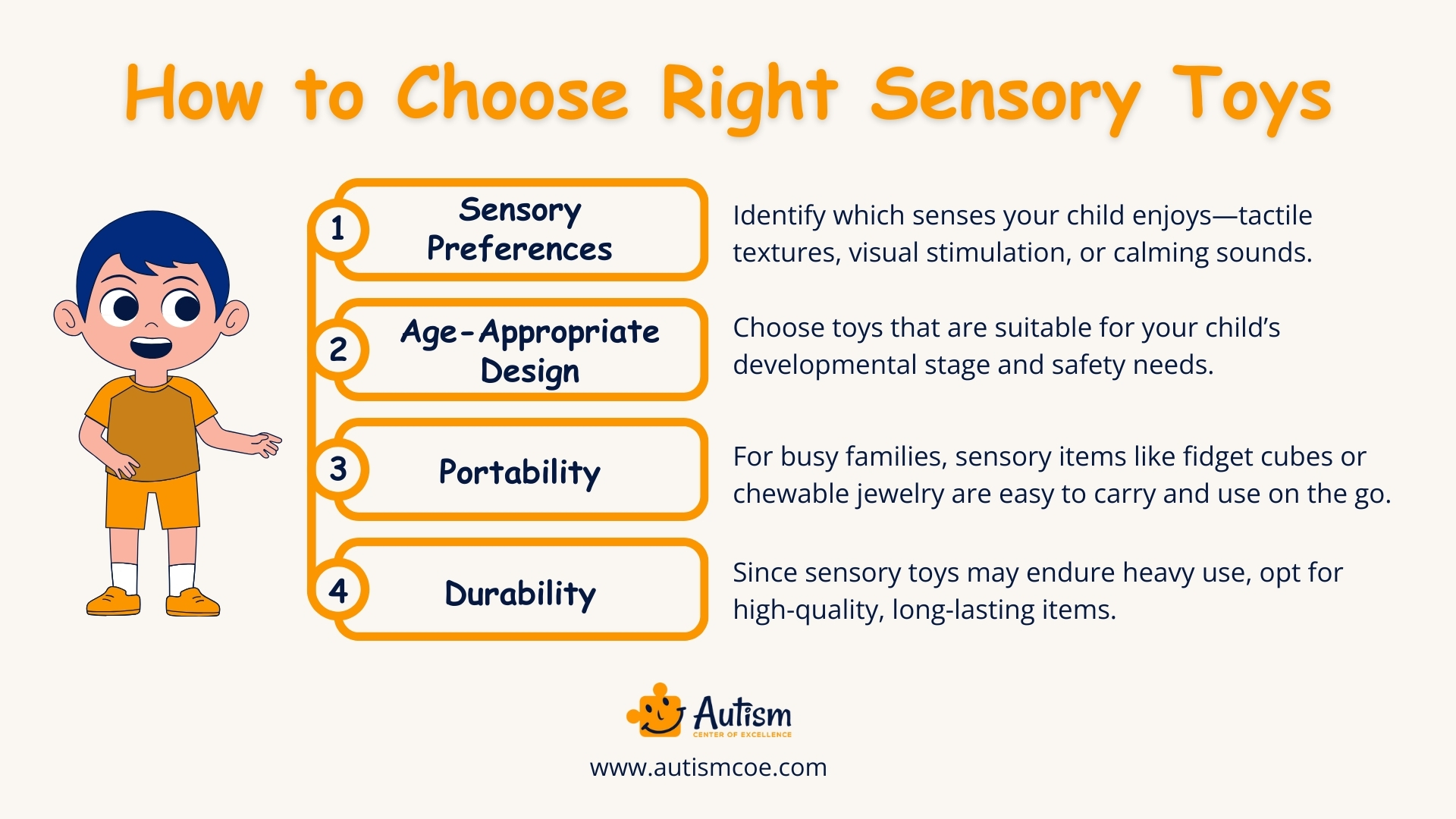
Choosing the Right Sensory Toys
When selecting sensory toys for autism, consider the following factors to ensure they meet your child’s unique needs:
Sensory Preferences
Identify which senses your child enjoys engaging with—do they prefer tactile textures, visual stimulation, or calming auditory inputs?
Portability
For on-the-go families, smaller sensory items like fidget cubes or chewable jewellery can be easily carried and used as needed.
Age-Appropriate Design
Choose toys that are suitable for your Child’s Developmental Stage and safety needs.
Durability
Since sensory toys may endure heavy use, opt for high-quality, long-lasting items.
Frequently Asked Questions & Answer
Are Sensory Toys Safe for Kids With Autism?
The process of achieving long-term goals in ABA therapy is a collaboration activity between BCBAs and caregivers. The goal to be achieved is uniquely relevant to the individual and determined by the developmental level and strength of the individual.
How Do Sensory Toys Support Therapy?
Sensory toys help therapy by engaging the senses to promote motor skills, heighten concentration, and contain emotional responses. Textures, sounds, or movement of these toys calm the anxiety response, enhance cognitive processing, and help in relaxation. They are ideal for children who have autism and ADHD or sensory processing disorders as they encourage focus, self-regulation, and exploration in a playful, interactive manner.
Can Sensory Toys Be Used at School?
Sensory toys can help students with focus, stress management, and learning, especially when they have sensory challenges, ADHD, or autism. Their use can also benefit any student who needs to stay calm and engaged. However, their use should be under the instruction of the teacher or a school policy to avoid creating a distraction.
What Are the 5 Sensory Play?
The 5 types of sensory play involve activities that engage the primary senses:
- Touch (Tactile) – Activities like playing with sand, slime, or water.
- Sight (Visual) – Exploring colors, shapes, or light displays.
- Hearing (Auditory) – Listening to music, nature sounds, or sensory toys with sound.
- Smell (Olfactory) – Exploring different scents through items like flowers, spices, or scented playdough.
- Taste (Gustatory) – Safe tasting of various foods or edible sensory materials.
These activities help stimulate brain development and enhance sensory processing skills.
Conclusion
Sensory toys are known to make a remarkable difference in the lives of children with autism. They give them tools to explore their environment, regulate their emotions, and thrive in various settings. Be it an added focus through fidget spinners, relaxation through weighted blankets, or sensory engagement through bubble tubes, the key is selecting autism-friendly toys that align with your child’s preferences and needs.
Remember that every Child with Autism is different. What works for one child might not work for another. Consultation with a therapist or specialist can be helpful in identifying the most beneficial sensory items for your child.
At the end of the day, sensory toys are about unlocking potential, bringing joy, and creating moments of calm in a sometimes-overwhelming world.
Please Note: The content of this blog is for informational purposes only and should not be considered a substitute for professional medical advice, diagnosis, or treatment. Consult a qualified healthcare professional for personalized guidance tailored to your specific situation.

Bhavika Bhasin
Bhavika Bhasin is the Research and Marketing officer at AutismCOE. She works with children and adults with ASD. Her clinical research includes evaluating various available autism screening and diagnosis methods and their efficacy. She is currently developing a novel screening exam that is indicated to be more accurate than the existing available exams. She is also writes articles papers for various publications.

